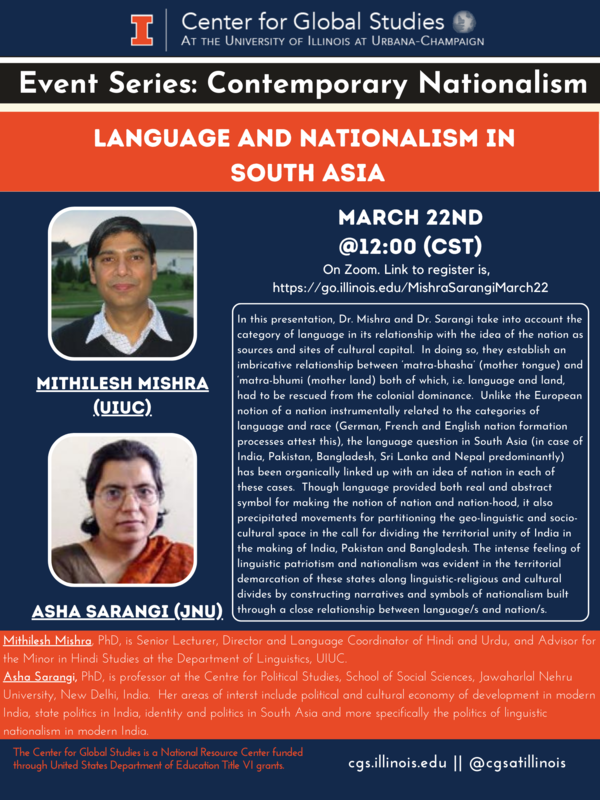- Sponsor
- Center of Global Studies
- Registration
- Registration
- Views
- 141
In this presentation, Dr. Mishra and Dr. Sarangi take into account the category of language in its relationship with the idea of the nation as sources and sites of cultural capital. In doing so, they establish an imbricative relationship between ‘matra-bhasha’ (mother tongue) and ‘matra-bhumi (mother land) both of which, i.e. language and land, had to be rescued from the colonial dominance. Unlike the European notion of a nation instrumentally related to the categories of language and race (German, French and English nation formation processes attest this), the language question in South Asia (in case of India, Pakistan, Bangladesh, Sri Lanka and Nepal predominantly) has been organically linked up with an idea of nation in each of these cases. Though language provided both real and abstract symbol for making the notion of nation and nation-hood, it also precipitated movements for partitioning the geo-linguistic and socio-cultural space in the call for dividing the territorial unity of India in the making of India, Pakistan and Bangladesh. The intense feeling of linguistic patriotism and nationalism was evident in the territorial demarcation of these states along linguistic-religious and cultural divides by constructing narratives and symbols of nationalism built through a close relationship between language/s and nation/s.
Mithilesh Mishra, PhD, is Senior Lecturer, Director and Language Coordinator of Hindi and Urdu, and Advisor for the Minor in Hindi Studies at the Department of Linguistics, UIUC.
Asha Sarangi, PhD, is professor at the Centre for Political Studies, School of Social Sciences, Jawaharlal Nehru University, New Delhi, India. Her areas of interst include political and cultural economy of development in modern India, state politics in India, identity and politics in South Asia and more specifically the politics of linguistic nationalism in modern India.
